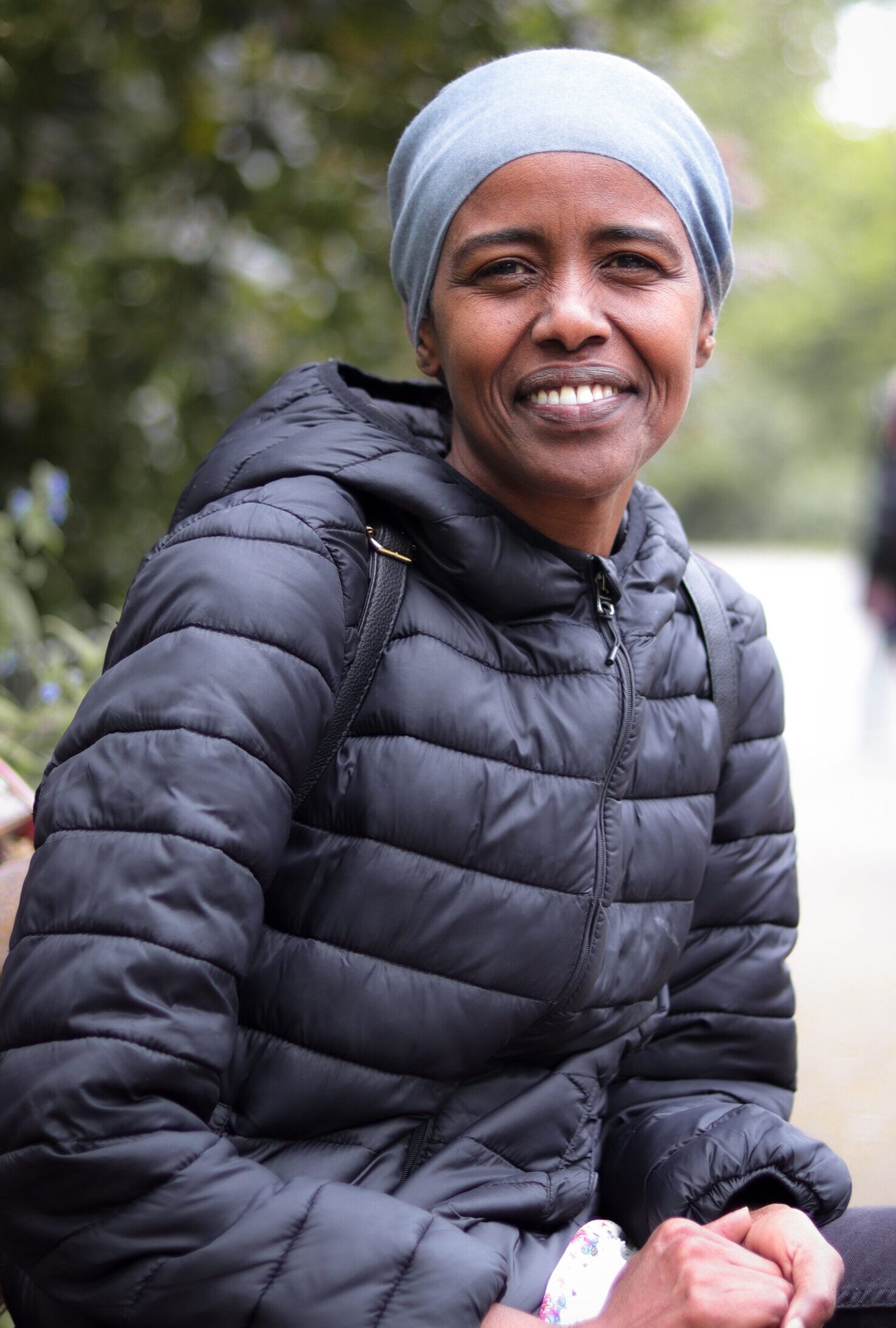Nadifa’s story
Nadifa is a Somali-Italian and mother of two children aged 14 and 10.
As a Somali-Italian now living in London, she likes to describe herself as an “international woman”. At 10 years old she left Somalia and lived in Italy where she eventually met her husband of 35 years. She has lived in the UK with her family for 12 years.
Esther met Nadifa at her local park to talk about her birth experience in the UK with her youngest child.
How was your experience during pregnancy and childbirth?
Nadifa’s first two children were born in Italy. The birth of her third child in the UK was “stressful” due to the inability to communicate for herself, independently.
Sharing the experience of the loss of her second child in Italy, Nadifa said that although it was a very painful moment, she felt able to talk through the experience with the hospital staff at the time as they shared a common language.
Following that tragic experience, it was important to Nadifa that she always had an interpreter present at her appointments.
For her, having interpretation was beneficial as the interpreter was able to empathise and “feel what I felt in that moment” – she noted that her anxiety often came from having to communicate through a third person:
“…it was stressful for me because I always needed someone to ask for help.”
Reflecting on whether she felt understood, Nadifa said:
“…you trust in that moment, but it’s not 100% trust because you don’t know if they translated everything that you said. I was worried because I didn’t know if she interpreted all the details that I wanted precisely. It was difficult for me.”
What do healthcare providers need to know?
After Nadifa shared her experiences we asked her to reflect and share what she thinks healthcare professionals need to know when caring for mothers with limited English.
“I think they have to have empathy. I know they only have 10 to 15 minutes to give every patient, they have limited time because there are a lot of people who need help, I understand.
“But for someone who does not speak English and has difficulty, try and put yourself in their position. What help would you need at that moment? You need someone who is kind, can give you more time, can understand what you are trying to say and can ask you questions till they understand what it is you need.”


